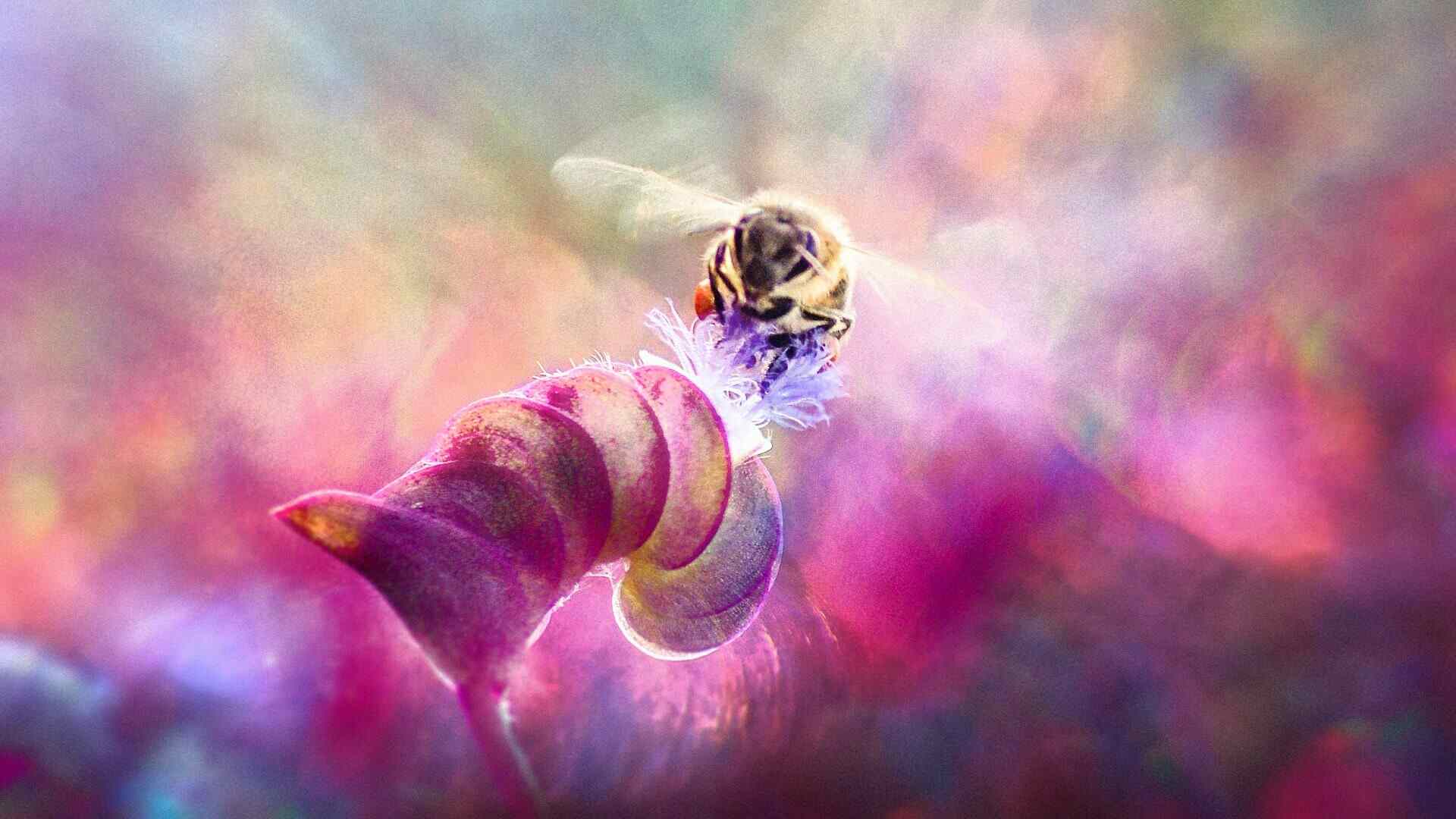- | 8:00 am
Wild bees are the real climate heroes
If we want to continue eating fruits and vegetables, maintain forests, and fight climate change, we must stop focusing on only one of 20,000 bee species.

Year after year, articles appear with doomsday scenarios describing how bee populations are rapidly declining, with buzzword headlines like “A bee-pocalypse in Europe” and “Nearly half of U.S. honeybee colonies died last year.” And it’s working; more people than ever are concerned with the “save the bees” movement, taking steps to help bees with wildflower gardens, bee baths, and even small-scale beekeeping.
These efforts are usually an attempt to save the celebrity bee: honey bees. This is unsurprising since the honey industry is worth $8 billion. The United States alone contains 2.7 million honey bee colonies. Honey bee pollination is also economically significant; for example, honey bees pollinate more than 100 commercial crops in North America.
However, this means we have been neglecting the other 20,000 bee species found globally. And it turns out that these wild bees are even more important for our crops; bees visit at least 90% of the world’s top 107 crops, and most of the bee-related crop pollination is thanks to a tiny percentage of the mostly common wild bee species.
SAVE THE WILD BEES
While we fight to save the honey bee, we forget about the wild bees and miss the fact that honey bees are causing them issues. A study done in California concluded a negative correlation between the presence of honey bees and wild bees. Overlapping habitats and competition for resources are the main culprits, while the spread of pathogens also causes wild bee declines. Additionally, next to land-use change and intensification, climate change rears its ugly head here, too. Projections suggest that recent climate change has led to bumble bee declines more than ever before.
Bees’ importance for crop pollination has been highlighted as a particular reason for conserving wild bees and their habitat. However, that is just part of what makes wild bees so crucial. Bees provide an essential role for ecosystem services that contribute to human well-being and support the planet’s life support systems. For example, bees contribute to green cities; wild bees are essential pollinators of city trees that dominate the pollinator community in green spaces. And perhaps the most important one: Life on Earth. Bees pollinate wildflowers, shrubs, and trees, contributing to biodiversity and the resilience of whole ecosystems.
BEES HELP MITIGATE CLIMATE CHANGE
Plant biodiversity and bees are tightly linked. A study conducted in the Netherlands and the U.K. found evidence that bee pollinators and wild plants are declining in parallel. The researchers discovered that declines in native plants correspond to simultaneous declines in their bee pollinators. Without bees, forests would look very different. When enough bees are present in a forest, they provide better pollination, leading to improved tree regeneration and conservation of the forest’s biodiversity.
By maintaining biodiversity, bees contribute to ameliorating climate change. Forests are carbon sinks; trees absorb and store CO₂ from the atmosphere and play a crucial role in regulating the Earth’s climate by removing this greenhouse gas. Grasslands are also important carbon sinks, consisting of grasses, wildflowers, and flowering shrubs that rely on bee pollination. Unlike forests, grasses keep the carbon in their roots. This is critical in our changing climate, where wildfires are increasingly frequent. If a forest burns, the carbon is released back into the atmosphere. However, if a grassland burns, the carbon stored underground in the roots is not released.
WHAT ABOUT HONEY?
So, if commercial honey bees cause declines in wild bee populations that are essential for biodiversity and carbon sequestration, should we keep producing honey? Humans have used this liquid gold for over 40,000 years, and it is beloved as a natural sweetener with antimicrobial properties. Unfortunately, commercial honey bee farming is no longer sustainable.
However, technology can be the solution; just as with other animal products, like milk, we are in an era where we can produce the same product without involving animals. My foodtech company, MeliBio, has pioneered and mastered the process of making a plant-based alternative to honey. Through MeliBio’s proprietary technology, we can now almost match honey on a molecular level. This means we can keep enjoying honey while eliminating the need for large-scale commercial honey bee farming, giving wild bees and, by extension, the planet a chance.
Darko Mandich is CEO at MeliBio.







































